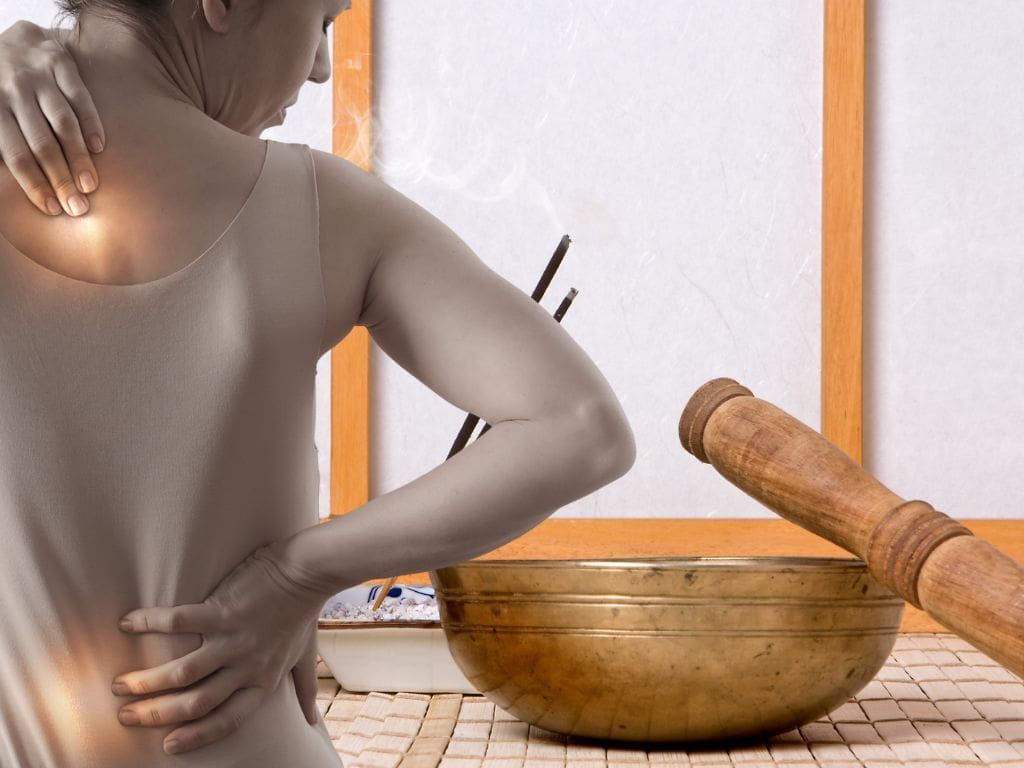Sound Therapy and Healing for Chronic Pain
Sound therapy for pain relief has displayed amazing result for those who suffer from physical ailments. By using particular frequencies on the body this approach can promote relaxation and reduce discomfort.

Sound therapy, a practice with known healing benefits in various cultures, has gained recognition globally in recent years. Ancient wisdom has long understood the role of sound in fostering harmony and well-being, which extends beyond the physical body.
Using sound as a tool for healing not only addresses pain but also serves as a means to reconnect with ourselves holistically. Sound healing integrates our mind, body, emotions, soul and spirit. The origins of healing can be traced back through the annals of civilizations such as Egypt, Babylonia, India, China, Africa, Native America and Persia.
Indigenous communities worldwide have valued the power of music for generations. In societies today, there is an increasing curiosity about exploring how sound works. We are beginning to understand these age-old practices as alternative methods.
One method that is attracting attention is sound therapy for pain in Missabotti and Macksville, NSW (New South Wales). It is a non invasive approach that can help relieve ailments. Particular high sound wave frequencies can aid in the healing process by improving blood flow and reducing inflammation. These waves travel through tissues to improve blood flow. Sound frequencies are known to decrease inflammation and promote activity within the body at a cellular level.
Studieshave shown that this treatment option is linked to minimal side effects, when compared to other invasive pain management techniques. It emerges as a feasible option for those looking for alternatives to conventional medical treatments. Sound healing for pain management uses specific frequencies to alleviate discomfort. This hastens the recovery process without heavy reliance on medications or other invasive procedures.
For instance, let’s consider the 128 Hz tuning fork. Placing it on areas like the sacrum, sore muscles, joints or chakra points can have positive effects. It promotes a wider range of motion for the joints. It boosts nitric oxide levels, eases pressure on the sacrum, and alleviates pelvic discomfort.
How does sound healing for pain specifically help?
When we feel pain, it’s not just about our physical sensations; our thoughts and emotional connections also

The use of tuning forks or Tibetan bowls emitting frequencies into the body can have an effect.
Research has shown that beats ranging from 0.5 to 3.5 hertz can guide the brain into a delta state. When tailored to an individual’s brainwaves through entrainment delta waves induce a sleep state. Whenever you experience feelings of well being, dopamine, oxytocin, serotonin and endorphins are released.
What happens when we are in pain!
Our body tightens up and gets stressed whenever we experience pain. Sound healing methods can help create inner peace and relaxation for both our body and our mind. This approach reduces the physical tension which worsens pain symptoms. Our body starts healing naturally when we achieve a state of serenity. Sound frequencies inserted into nerve receptors of the painful area can help reduce pain.
A tuning fork applied directly to body regions will begin the healing process. Treating the nerves or muscles that cause discomfort with sound might result in permanent pain relief. Studies indicate that sound frequencies can assist in chronic pain relief by activating brain areas that process pain signals.
Researchers
Clinical studies have shown that sound healing treatments can help reduce phantom pain symptoms in patients who have undergone amputation or experienced traumatic events that resulted in nerve damage.
Sound healing is a valuable tool for managing chronic pain. Sound healing techniques target specific areas that trigger pain sensations, utilizing precisely calibrated frequencies to interrupt pain signals and make discomfort more manageable for patients.
Active sound frequencies that are customized form the foundation of sound healing pain relief methods since they extend beyond pre-recorded music used for relaxation or distraction (Brant, 2013; Allen, 2013).
The practice of using sound healing to treat pain increases the production of endorphins, which act as natural painkillers within our bodies. Sound healing stands out because it not only provides effective pain reduction benefits but also produces broader positive effects on our general health through increased endorphin production. Sound frequencies calm the body and help release muscle tension that frequently leads to pain. Sound healing theraoy provides soothing properties that help patients control their discomfort.
When the brain stops getting signals it starts sending warning signals because it interprets this as pain. The body usually detects this feeling through foot injuries or illnesses which prompts the brain to activate warning signals. The healing process of the foot remains incomplete due to nerve damage, scarring, and weakened nerves in the pain pathway, which produce ongoing pain signals in the future.
The Positive Effects of Sound Frequencies on Reducing Pain
Sound therapy offers several advantages as a pain management solution. Sound wave therapy provides pain relief without damaging surrounding tissues through a non-invasive approach.
People who want to manage their pain choose sound healing therapy instead of opioids and anti-inflammatory drugs. Sound therapy offers a natural approach to reduce inflammation, speed up healing, and manage pain without pharmaceuticals. In contrast, medications can lead to dependence and cause side effects like nausea and dizziness.
One of the main benefits of sound therapy is its ability to improve blood circulation in the affected region, which aids in delivering oxygen and nutrients to damaged tissues. The improved blood circulation delivers additional oxygen and nutrients to damaged muscles and tissues which helps reduce muscle and joint discomfort and stiffness.
Sound therapy is beneficial for post-surgical or injury recovery as it offers an alternative to traditional pain management methods by promoting healing and reducing inflammation. High frequency sounds in treatment stimulate cellular repair mechanisms and boost collagen production, which leads to healthy tissue and tendon development.
Redness and swelling following surgeries or accidents can delay the healing process, but sound healing therapy can help by reducing inflammation. Sound healing therapy accelerates recovery by reducing inflammation and breaking down inflammatory molecules.



